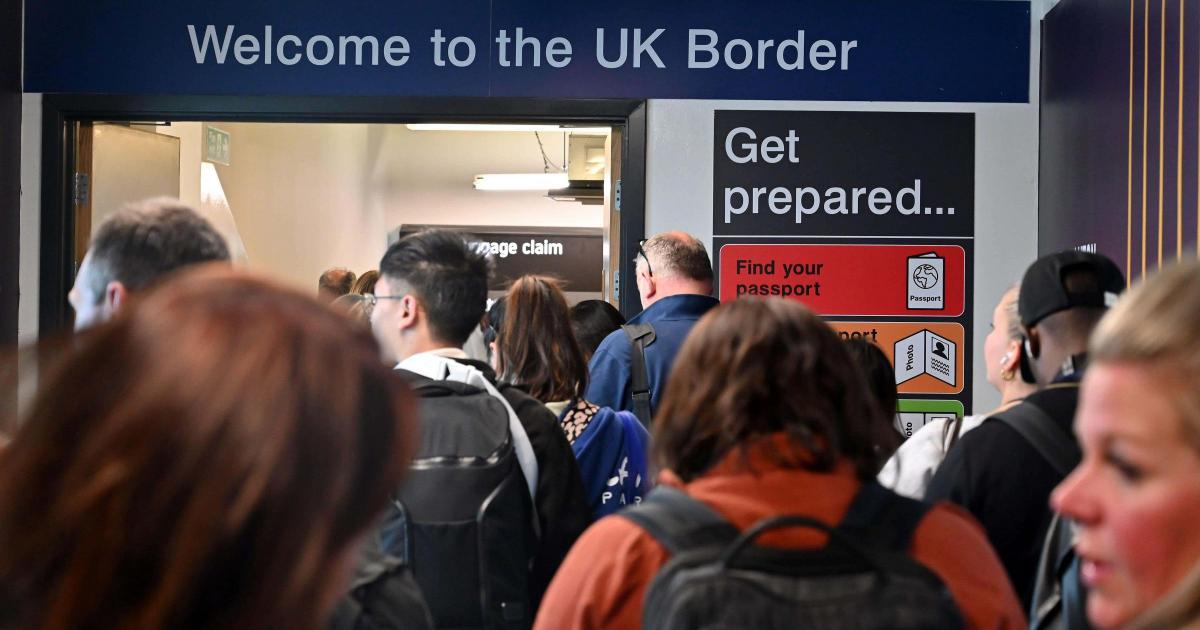Shadow chancellor Sir Mel Stride announced on Monday that the Conservatives would restrict benefits to UK citizens if the party wins the next general election, though he added that EU nationals with settled status would continue to be eligible for payments.
Universal credit is the main social security benefit in the UK and is intended to help with living costs for those on a low income or out of work.
A total of eight million people across England, Scotland and Wales were receiving universal credit (UC) as of July 2025, up from 6.9 million a year earlier, according to the latest available figures from the Department for Work & Pensions.
The vast majority of current claimants are people who live or work in the UK without any immigration restrictions: British and Irish nationals, plus those who have right of abode in the country, which includes some Commonwealth citizens.
Some 6.7 million people were in this category in July, making up 83.8% of all claimants.
This is a slightly higher proportion than a year earlier (82.5%).
The next largest proportion are people who have a right to live and work in the UK under the EU Settlement Scheme.
This scheme was introduced following the UK’s departure from the European Union and covers citizens of the EU, along with Iceland, Liechtenstein, Norway and Switzerland, who had been living long-term in the UK before December 31 2020.
These people accounted for 9.6% of all universal credit claimants in July 2025, or 770,213 people, down from 10.6% a year earlier.
A further 5.8% of UC claimants – around one in 17, or 463,436 people – are foreign nationals in the UK as refugees, for humanitarian reasons, or are non-EU citizens with limited or indefinite leave to remain.
Refugees are people who have been granted right to asylum in the UK and these made up 1.5% of claimants in July, broadly unchanged from a year earlier (1.6%).
The percentage of claimants in the UK for humanitarian reasons stood at 0.7%, unchanged from a year ago.
This category covers foreign nationals who have travelled to the country by legal routes such as the Ukraine and Afghan resettlement schemes.
Some 2.7% of claimants in July were classed as having indefinite leave to remain in the UK, up from 2.2% a year earlier.
This refers to non-British nationals – separate from the EU Settlement Scheme – who have the right to live, work and study in the UK for as long as they like and to apply for benefits if eligible.
A person can only apply for indefinite leave to remain (ILR) if they have been lawfully living in the UK for a set period of time, which in most instances is currently five years.
These people have typically arrived in the UK on a work or study visa.
Other conditions have to be met before ILR is granted such as proficiency in the English language and having no criminal record.
It is not the same as British citizenship and does not give someone the right to vote in national elections or hold a British passport.
A separate 0.9% of universal credit claimants in July were classed as having limited leave to remain in the UK, down year on year from 1.3%.
This means they were non-British nationals – separate from the EU Settlement Scheme – who had been approved to enter the UK and to remain for a fixed period of time until their visa expires.
Of the eight million people across England, Scotland and Wales receiving universal credit in July, 213,666 had indefinite leave to remain and 75,471 had limited leave to remain.
Some 120,040 had refugee status and 54,259 were in the country for humanitarian reasons.


